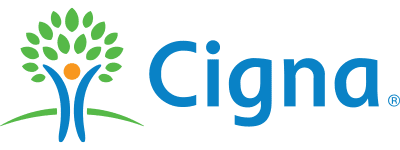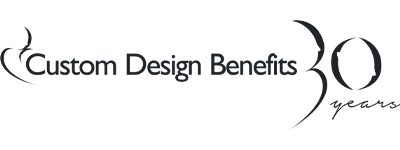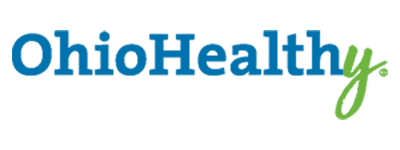Contact Us

Contact Us
Embracing sobriety is a crucial and commendable milestone in overcoming substance abuse and addiction. Staying sober is an ongoing journey, one that requires a strategic shift from old habits, toxic relationships, and situations that precipitated active addiction. This journey often begins with addiction treatment, where individuals battling alcohol abuse or drug addiction learn the fundamental tools to navigate life post-recovery. In this article, we will unravel the various strategies to maintain sobriety, such as fostering a robust support network, cultivating sober friendships, engaging in healthy living practices, and prioritizing mental health. Whether you’re grappling with alcohol abuse, drug addiction, or a polysubstance use disorder, our objective is to provide you with an arsenal of tips and insights to help you remain sober, even in the face of triggers and potential relapses. From replacing drinking buddies with sober friends to the importance of spending quality time with supportive family members, we’ll guide you in molding a new, healthier routine conducive to sustained sobriety.
Addiction Is An Everyday Battle That You Can Overcome
One of the greatest fears of those in recovery is a relapse. After all the hard work and time it takes to remain sober and to go through rehab, no one wants to relapse and go through everything again. Thankfully, there are many practices you can put in place to maintain sobriety, and by implementing the following tips for staying sober, you will lessen your risk of relapse.
Staying sober is a lifelong process, and we understand that cravings can be an obstacle for patients during the recovery process. When you learn how to break addiction habits and identify cravings, you can manage and avoid the urge to relapse. It’s important to note that experiencing cravings is not a sign of weakness – it’s a natural part of recovery and is deeply rooted in your psychological association with drugs and alcohol.
9 Helpful Tips To Stay Sober From Drugs and Alcohol
The following is a set of strategies to help you take control and win the power to resist cravings.
If You Went to Rehab, Work Your Program
If your journey into recovery began with a stay at an inpatient rehab center be sure to continue your treatment plan after you go home. You should have aftercare or an ongoing treatment plan to follow which may include any or all of the below tips. Follow the advice of your counselors, sponsors, mentors or whoever you lean on during recovery, and don’t spend time alone if you are in early recovery from substance use disorder or alcohol abuse. Seek out those who have been successful in staying sober and use their experience to help you through the early phases.
Eat Healthy & Balanced

Eating improves overall mood, health, and can prevent emotional ups and downs that can affect your cravings. Not only should you be eating lots of healthy food, veggies, fruits and lean proteins you should also be aware of how much and how often you eat. Be careful not to overeat or skip meals.
Serve Others Include Those Suffering From Addiction

Now that you are enjoying a happy and sober life it is time to spread that achievement to others. Seek out others in recovery and do what you can to help them. Bring someone to a support group, have a cup of coffee and share your story, and offer to mentor or sponsor a person who is hours or days into recovery. This practice helps keep you out of your head and also creates accountability for your actions. Many people in recovery report that service to others is the most important and transformational part of their journey.
Service to others can also include several other actions that allow you to get out of yourself and give your time and energy to good causes. You can volunteer at a shelter, serve meals at a soup kitchen, or do service work for your church as you develop coping skills.
Change Habits

Many of your past habits led you on the road to using drugs or alcohol to excess. It is time to make a positive change! This is one reason why having a mentor/counselor/sponsor is so important. Each person has a different set of habits and by sharing your day to day activities with someone else they can help you break the bad habits of your past and replace them with new healthy living choices.
Start a New Hobby

Occupy your mind and set goals by trying something new. Try learning an instrument, study a strategy game, or join a local softball or other sports league. Not only is this a great way to occupy your time, but you also will meet new people and develop new healthy habits.
Find Inner Balance

Active addiction takes up a ton of time and energy. When you stop using substances you will find yourself with a lot of time to fill. This is a great time to throw yourself into a myriad of positive activities. However – be sure you don’t replace one obsessive behavior for another. Any activity can overtake your life in an unhealthy way. Make sure you are making time for yourself and your treatment or aftercare plans.
Exercise Regularly

Excrcise has enormous benefits for everyone. Exercise helps with stress reduction, endorphin release, and help you maintain a healthy body type and image. For folks in recovery exercise also helps fight boredom and is an avenue for setting and reaching health goals.
Support Groups

Support groups in recovery are an effective way to maintain sobriety, develop yourself in recovery, and share your experience with others. Addiction support groups come in many varieties. The most popular being twelve-step based programs like Alcoholics Anonymous or Narcotics Anonymous. These are by no means the only options for mutual support groups available. Other types of support groups exist as well such as Celebrate Recovery, LifeRing, Women for Sobriety and SMART Recovery or Caduceus groups.
Identifying Triggers To Relapse Is An Important Step To Stay Sober
Identifying your personal triggers is a crucial part of maintaining sobriety. Triggers can be both external, such as people, places, or situations that bring about thoughts or cravings associated with substance use, and internal, like certain feelings, thoughts, or emotions that are tied to substance use. Recognizing these triggers is the first step in creating a strategy to either prepare for them or avoid them entirely. Common triggers can include stress, emotional distress, environmental cues, people who still use drugs or drink, relationship problems, and job or financial issues. By understanding what situations or emotions might trigger the desire to use substances, you can better prepare and prevent potential relapses, thus maintaining your journey toward long-term sobriety
Frequently Asked Questions About Staying Sober From Substance Abuse
Why is it so hard to stay sober?
Sobriety is a significant endeavor that requires courage, difficult conversations, and significant life changes. Lifestyle modifications can be uncomfortable and perhaps even generate anger and resentment. These feelings are normal and part of the process of sobriety1.
What is the most effective way to stay sober?
There’s no one-size-fits-all answer to this, but some effective strategies include identifying personal triggers, recognizing relapse warning signs, preparing for Post-Acute Withdrawal Syndrome (PAWS), avoiding old routines and habits, building healthy relationships, and seeking support2.
How do I keep myself sober?
Keep yourself sober by identifying triggers, recognizing warning signs of relapse, preparing for PAWS, avoiding old routines, and cultivating healthy relationships. Seek professional help if needed and join a support network or groups to share experiences and gain advice from others who are also striving to maintain sobriety2.
How many days is considered sober?
There isn’t a universally accepted definition of how many days constitute sobriety. Sobriety can mean different things to different people. For some, it may mean total abstinence for their entire lives with at least one relapse, while others may have periods of sobriety ranging from days to years1.
What are the hardest days of sobriety?
I couldn’t find specific data on which days are considered the hardest in sobriety. It likely varies from person to person, based on their personal experiences, support systems, and the severity of their addiction. However, it’s well-recognized that the initial days can be particularly challenging due to withdrawal symptoms and lifestyle changes.
What are the 5 rules of sobriety?
I couldn’t find a specific reference to “5 rules of sobriety”. Sobriety strategies vary and may include recognizing triggers, preparing for PAWS, avoiding old routines, building healthy relationships, and seeking support.
What is the best thing to do when you sober?
The best thing to do when you are sober is to engage in activities that support your recovery and overall well-being. This may include participating in healthy activities like exercise, pursuing hobbies, building healthy relationships, and seeking support from groups sober friends or professionals2.
What does staying sober mean?
Staying sober generally means abstaining from alcohol and drugs. The term is often associated with recovery from addiction, which is a broader process involving improving health and wellness, living a self-directed life, and striving to reach full potential. While “recovery” and “sobriety” are sometimes used interchangeably, they are different concepts. Sobriety usually refers to the state of not being under the influence of drugs or alcohol, while recovery is the broader process of change and improvement1.
Seek Professional Addiction Treatment If You Can’t Stay Sober
Despite your best efforts, you might find it challenging to maintain sobriety. Remember, you are not alone in this struggle seeking addiction treatment here, and there are professional resources available to help you. If you’re unable to stay sober, seeking professional addiction treatment can be a vital next step towards recovery.
There are several signs that you might need professional help. These include an inability to just quit drinking or using substances despite wanting to, neglecting responsibilities at home or work due to substance use, experiencing withdrawal symptoms when you try to quit, and continuing to use substances even when they cause health problems or lead to dangerous situations1.
Professional treatment typically starts with a comprehensive assessment to determine the extent of the addiction and any co-occurring mental health issues. This evaluation will help guide the development of an individualized treatment plan, which may include detoxification, therapy (both individual and group), medications, and aftercare planning.
Therapy can be particularly beneficial, as it can help you understand and change the thoughts and behaviors that led to substance abuse. Cognitive-behavioral therapy (CBT), for example, can help you learn to cope with stress and identify triggers that lead to substance use. Some people also find it helpful to participate in family therapy or to join a support group.
In addition to therapy, incorporating healthy lifestyle habits such as exercise can support your recovery journey. Regular physical activity can help reduce cravings and improve your mood, making it easier to maintain sobriety7.
The most important thing to remember is that it’s okay to seek help. Addiction is a complex disease that often requires professional intervention, and there’s no shame in admitting that you need support. If you’re struggling to stay sober, reach out to a healthcare provider or a local addiction treatment center. They can provide the help and guidance you need to move forward towards recovery.
Please note that this advice is general in nature, and individual treatment needs can vary. Always consult with a healthcare or mental health professional for personalized advice.
In addition, I would like to point out that I couldn’t find a specific source that discusses all the elements of professional addiction treatment. If you would like more detailed information, I recommend searching for authoritative resources like the Substance Abuse and Mental Health Services Administration (SAMHSA) or the National Institute on Drug Abuse (NIDA), or consulting with a healthcare provider who specializes in addiction.
You Might Also Be Interested In
- Relapse Prevention Guide
- Alcohol Abuse
- Alcohol Detox
- How Long Does Alcohol Stay In Your System
- Alcohol And Genetics
- The Effects of Alcohol Abuse
- Treatment Plan For Alcohol Use Disorder
- What Are The Different Types of Drinkers?
- The Effects Of Alcohol Abuse
- Alcohol Treatment & Rehab In Ohio
- What Is Luxury Rehab?
- What To Look For In An Alcohol Rehab Program
- How Genetics Impact Alcoholism
- Why Is Alcohol Use Disorder A Chronic Disease?
- Boutique Alcohol Detox In Ohio
- Medication For Alcohol Use Disorder
Sources
- U.S. Department of Health and Human Services (HHS), Office of the Surgeon General, Facing Addiction in America: The Surgeon General’s Report on Alcohol, Drugs, and Health: Chapter 5: Recovery: The many paths to wellness. Washington, DC: HHS, November 2016.
- National Institute on Drug Abuse. (2020, July 13). Drug misuse and addiction.
- National Institute on Drug Abuse. NIDA. (2021, August 3). Drugs, Brains, and Behavior: The Science of Addiction.
- Melemis, S.M. (2015). Relapse prevention and the five rules of recovery. Yale Journal of Biology and Medicine, 88, 325-332.
- National Institute on Drug Abuse. (2014, January). Principles of drug addiction treatment: A research-based guide (third edition).
- “Sobriety Strategies: 13 Tips for Staying Sober.” Verywell Mind, www.verywellmind.com/tips-for-staying-clean-and-sober-67900. Accessed 25 June 2023.
- “Treatment Approaches for Drug Addiction.” National Institute on Drug Abuse, www.drugabuse.gov/publications/drugfacts/treatment-approaches-drug-addiction. Accessed 18 June 2023.
- “Understanding Drug Use and Addiction DrugFacts.” National Institute on Drug Abuse, www.drugabuse.gov/publications/drugfacts/understanding-drug-use-addiction. Accessed 25 June 2023.















